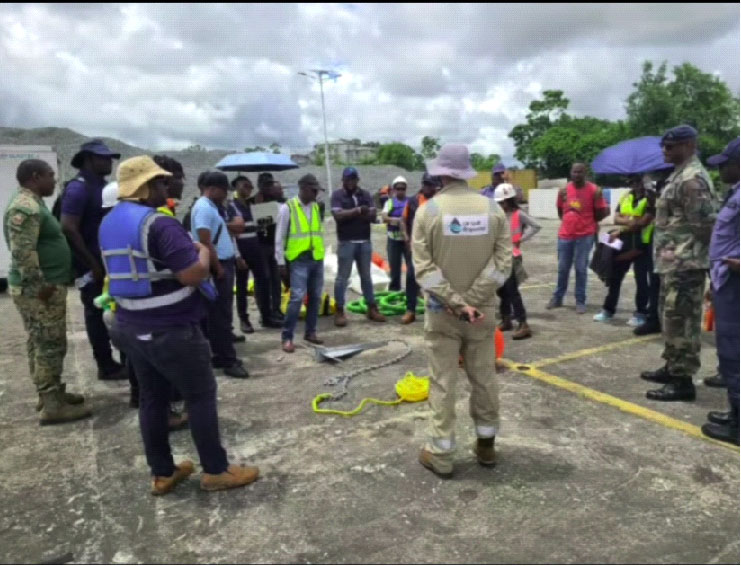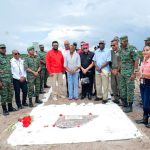The Regional Security System (RSS) Training Institute recently concluded two critical week-long courses in Guyana – the Oil Spill Response & Shoreline Cleanup Assessment Techniques Course and the Incident Command System (ICS) Course.
Co-hosted by the Guyana Defence Force (GDF) and the Civil Defence Commission (CDC), and supported by Oil Spill Response Limited, the training was funded by RSS Headquarters. It brought together participants from across the Caribbean, including RSS member state representatives from Antigua and Barbuda, Barbados, Dominica, Grenada, St. Kitts and Nevis, and St. Vincent and the Grenadines, alongside key local agencies such as the EPA, Guyana Energy Agency, Maritime Administration Department, and SOL Guyana Inc.
A total of 27 GDF members enhanced their skills during the training.The programme blended simulation drills, tabletop exercises, and practical shoreline cleanup activities with sessions on legislative frameworks and command-and-control systems. This hands-on approach ensured that participants not only learned technical response methods but also understood how to coordinate seamlessly in multi-agency operations, a core aim of the RSS Training Institute’s mission to standardise regional emergency preparedness.
Closing the week’s activities, Colonel General Staff, Colonel Kenlloyd Roberts, MSM commended the RSS for delivering such timely and relevant training, stressing that it builds capacity, enhances operational flexibility, and positions participating agencies for more effective joint responses in the future. Building on that point, RSS Director of Training, Lieutenant Commander Brian Roberts, noted that modern threats require integrated, interagency solutions, and he urged participants to return to their respective services as “ambassadors of best practices and champions of preparedness,” thereby strengthening the regional network of trained responders.
That spirit of collaboration was echoed by EPA Deputy Director Sharifa Razack, who emphasised that the training’s value lies in its immediate applicability, especially to the work of the EPA’s Emergency Response Department. She highlighted that the agency will actively implement the lessons learned to improve national readiness.
Adding the government’s perspective, Home Affairs Minister Robeson Benn praised the initiative as both timely and strategic, given Guyana’s rapidly expanding oil and gas sector. He underscored that synergy among national and regional partners is essential for safeguarding the country’s interests, and welcomed the heightened awareness and cooperation the training had fostered.
This capacity-building effort dovetails with a recent legislative milestone, the Oil Pollution Prevention, Preparedness, Response and Responsibility Bill 2025, passed by Parliament in May. The law designates the CDC as the national authority for oil-spill preparedness and response, formalises the Incident Command System, and enshrines the “polluter pays” principle, requiring oil companies to provide financial assurances for potential spill impacts.
By combining strengthened legal frameworks with specialised, hands-on training, Guyana is enhancing its ability to protect its environment and communities in an era of rapid economic growth. This effort also reflects the RSS’s broader mission, rooted in its establishment in 1982 to foster collective security among Eastern Caribbean states.
Over the decades, the RSS has evolved into a treaty-based organisation integrating military and police resources to respond swiftly to crises, from disaster relief to complex security threats , and now, with Guyana as a member, that regional shield has grown even stronger.








